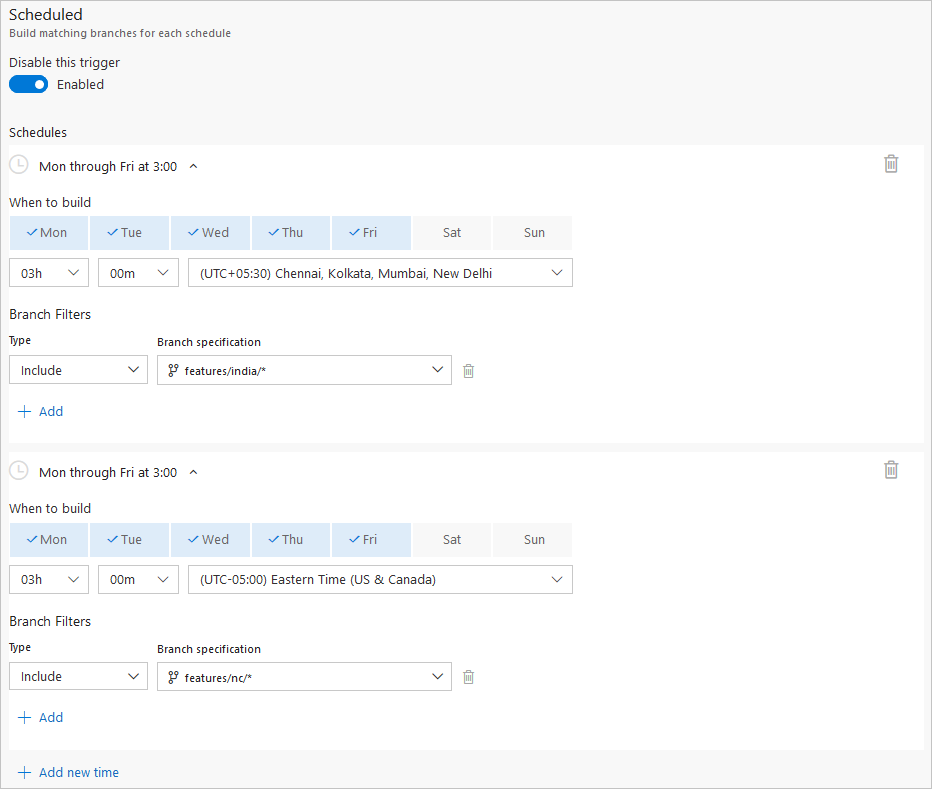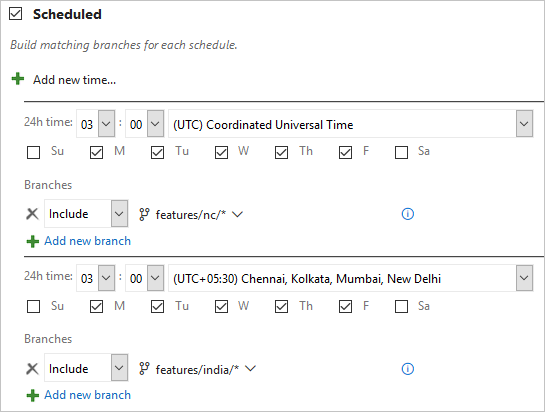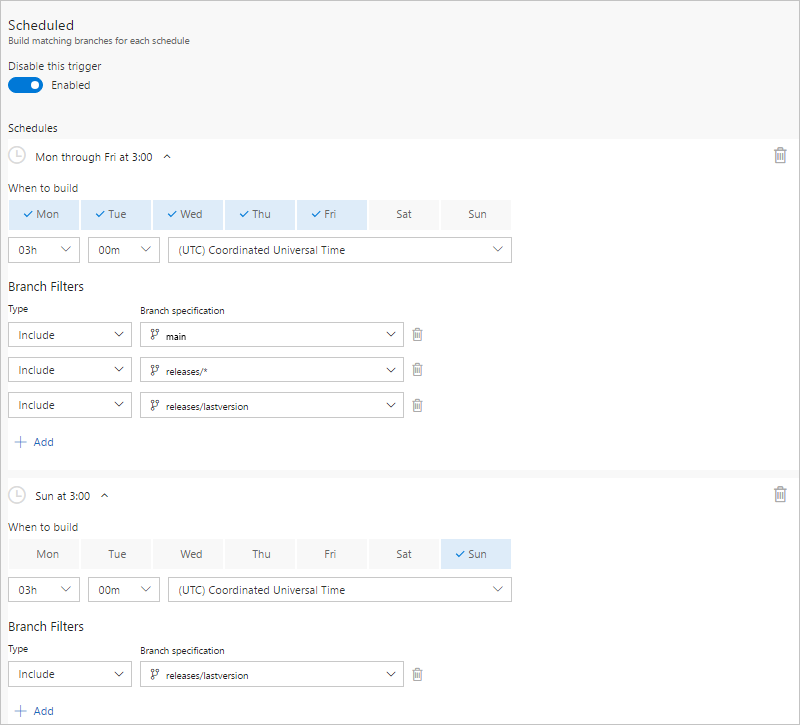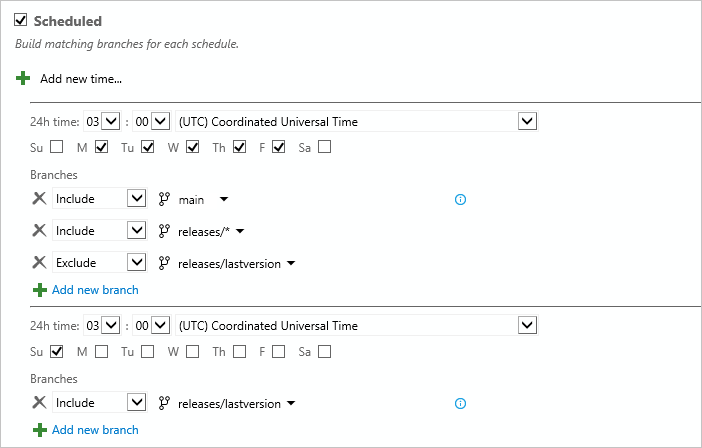Configure schedules for pipelines
TFS 2017 | TFS 2015
Note
In Microsoft Team Foundation Server (TFS) 2018 and previous versions, build and release pipelines are called definitions, runs are called builds, service connections are called service endpoints, stages are called environments, and jobs are called phases.
Azure Pipelines provides several types of triggers to configure how your pipeline starts.
- Scheduled triggers start your pipeline based on a schedule, such as a nightly build. This article provides guidance on using scheduled triggers to run your pipelines based on a schedule.
- Event-based triggers start your pipeline in response to events, such as creating a pull request or pushing to a branch. For information on using event-based triggers, see Triggers in Azure Pipelines.
You can combine scheduled and event-based triggers in your pipelines, for example to validate the build every time a push is made (CI trigger), when a pull request is made (PR trigger), and a nightly build (Scheduled trigger). If you want to build your pipeline only on a schedule, and not in response to event-based triggers, ensure that your pipeline does not have any other triggers enabled. For example, YAML pipelines in a GitHub repository have CI triggers and PR triggers enabled by default. For information on disabling default triggers, see Triggers in Azure Pipelines and navigate to the section that covers your repository type.
Scheduled triggers
Examples
Cron syntax
Scheduled runs view
Running even when there are no code changes
Note
Scheduled builds always run on schedule regardless of code changes on TFS 2018.1 and lower.
Limits on the number of scheduled runs
There are certain limits on how often you can schedule a pipeline to run. These limits have been put in place to prevent misuse of Azure Pipelines resources, particularly the Microsoft-hosted agents. This limit is around 1000 runs per pipeline per week.



